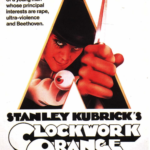Might Hollywood be on the brink of change? Irrevocable change that goes beyond the rescheduling of celebrity awards events.
The 93rd Annual Academy Awards have been pushed back while the film industry continues to grapple with the massive upheaval brought on by the global coronavirus pandemic. A return to normal can’t come too soon.
Hollywood understands only too well that the show must go on, that adapting is the only course before it. To what extent though is it prepared to go before the old ways are lost and long-established business models and practices are irrevocably changed?
It’s anybody’s guess.
The 2021 Oscars have been pushed back by two months, the latest celebrity event to be directly affected by the on-going global coronavirus pandemic after both the Golden Globes and Baftas settled on postponement next year.
The Academy of Motion Picture Arts and Science (AMPAS) announced it was moving the star-studded event from February 28 to April 25, a move that requires similar proportional extensions to the eligibility period (moved from December 31 to February 28) and the relaxing of some of the Academy’s stringent qualification rules.
President David Rubin and CEO Dawn Hudson said jointly in a statement by the Academy, “Our hope, in extending the eligibility period and our Awards date, is to provide the flexibility filmmakers need to finish and release their films without being penalized for something beyond anyone’s control.”
Whether the coronavirus crisis will cooperate with the new timetable is impossible to say. There is genuine speculation about all the big celebrity events actually going ahead as planned next year. Then, if and when they do go to plan, the question becomes logistical.
How will they go ahead? Will it be back to normal? With the usual pomp and ceremony of the red carpet and the whole shebang. Or will it be the “Zoom” Oscars? Forced into the virtual realm, with Academy members and nominees zooming into the event while sat at home in all their designer finery.
The only thing certain these days is uncertainty. But the Academy nevertheless remains optimistic. Somehow, someway, the show will go on.
Like many other industries the film industry was hit particularly hard by the public health crisis. The shuttering of cinemas wreaked havoc on film release dates and the shuttering of studios put a stop to films that were in pre-production, mid-production and post-production. Everything ground to an abrupt, screeching halt.
The verb “to adapt” is, arguably, the underlying theme of 2020 – a most trying and tough year thus far. Working remotely, Zoom meetings, virtual social gatherings, sheltering and social distancing–are just of the many bywords representing the new normal that many people around the world have had to accept.
That Hollywood studios would do their own adapting during this unprecedented time was inevitable, but few could have anticipated the magnitude and implication of some of the measures.
Hollywood studios took the pandemic as an opportunity to experiment with digital-first outputs. For the most part, small to mid-size budget titles skipped cinema release dates in favour of streaming services – motivating this move is the fact that film studios get a larger percentage of the revenue when going direct-to-digital than they do at the box office.
The defining moment, however, came when Universal studios decided in May to give Dreamworks-made Trolls World Tour a digital release at $19.99, instead of delaying its box-office release as some other films have done. The film made $100 million in its first three weeks in the United States. To illustrate the significance: the first instalment of the Trolls film needed a five-month sojourn at the box-office to gross $120 million.
With Disney now announcing it too was taking its big-budget film Mulan directly to digital next month, bypassing cinemas entirely and offering it for $29.99 on its Disney+ channel, a seismic shift has occurred.
Mulan, which was projected to be a $1bn-plus blockbuster, is among some of the early odds-on favourites for the 2021 Oscars Taking it out of the hands of box offices is a big deal.
Suppose, the Academy relaxing the rules for qualification and giving entry to films that would have otherwise qualified but were forced to go to digital outputs was the first significant step towards change. One that may be provisional due to the unprecedented pandemic but, equally, may not be easily undone in a post-pandemic world. This may be the cusp of whole new era in the film industry.

